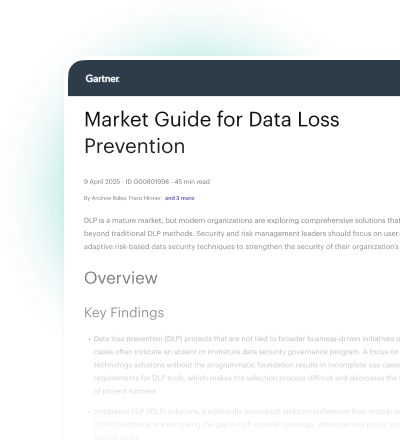What is Web Content Filtering?
Web content filtering is a technique that blocks and screens access to inappropriate or unsafe web content.

Web Content Filtering Explained
Uses of web content filtering can include a company keeping employees from visiting known spam sites or school systems restricting students from adult content.
How does web content filtering work?
Content filters come as either hardware or software and are often part of a firewall. As part of a firewall they're likely to serve security purposes. However, the action of content filtering can refer to the implementation of a company's policies in regards to information system usage through the company’s network. For example, internet content filters in offices serve to filter non-work related content such as social-networking sites unrelated to the work environment or deemed distractions. The technology behind web content filtering establishes rules and patterns that apply to the harmful websites that may seek access. By using predetermined rules, the content filter identifies commonalities such as objects within images or text strings such as keywords and groups them into categories such as adult, gambling, gaming, sports, and so on. Once there is a match from a site seeking access, they are marked as objectionable and denied access.
Keeping undesirable content from minors is one of the more apparent reasons for individual use of web content filtering. However, content filtering is becoming an essential component of the workplace. Domain Internet System (DNS) filtering refers to blocking specific sites by pre-identifying their IP address to ensure the prevention of access. These sites include productivity sinks such as social media, gambling, adult content, and websites that pose malware risk.
Why is web content filtering important?
Hacking, phishing, viruses, and malware are some of the biggest threats to any business. Phishing, for example, is when hackers obtain sensitive information through deception, such as duping employees to log in to falsified companies to gain login credentials. Undeniably, the loss or corruption of sensitive data such as login details, personal information, accounting details, and legal documents can be catastrophic to any company. Hence the importance of content filtering protocols. Web content filtering has a multitude of benefits for both individual users and organizations.
Protect minors from inappropriate content
The most obvious benefit and use of web content filtering for individual users is the successful protection of children from inappropriate content such as pornographic and violent content. In a fast-paced world, parents may not always be physically present to watch and monitor the kind of content their children are exposed to, additionally they may not know all of the sites to restrict. The use of content filtering as part of a firewall helps achieve complete control over what is accessible and not by referencing the rules placed by the user or administrator.
Reduced malware infections
By blocking access to known sites that may carry a high risk of malware, you can protect your data and users before those sites have a chance to introduce malicious payloads. For example, using DNS filtering users can significantly limit the threats and, consequently, reduce the remediation workload for IT professionals and MSPs. DNS filtering is so effective that it can stop Internet-borne malware before it reaches the network. Besides restricting access through domain names, firewalls with web content filtering systems can also scrutinize and scan web pages to determine what might contain threats.
Protection against exploit kits
Cybersecurity technology is continually evolving, and at the same time, hackers are also developing smarter ways to illegally access your data and networks. Exploit kits contain code designed specifically to attack web browsers' vulnerabilities through browser extensions and plugins. Unknowingly a user will visit a malicious URL that has an exploit kit that triggers a malware download once the vulnerabilities are exploited. Content filters can effectively identify exploit kits and block off access before any download is committed.
Increased staff productivity
Social media is a notorious productivity sink, distracting, takes up huge chunks of valuable work time, and leads to reduced productivity. Restricting access works to increase productivity significantly. However, some industries require social media savviness for operations. In these industries, a different set of sites become productivity sinks, such as online shopping and streaming sites. There is absolutely no reason why employees should be watching movies while they should be working. In addition to restricting access to websites that are distracting, it is vital to consider other avenues that could pose a threat, such as downloading suspicious files, opening suspicious emails, and responding to unverified contacts.
Network bandwidth efficiency
Non-work-related internet usage significantly saps your network bandwidth. By limiting access to these sites, you achieve increased network bandwidth efficiency with faster connections. To achieve network bandwidth efficiency, you can educate your team about the merits of a consistently fast network or set limits on video streaming sites such as YouTube, a 'bandwidth hogger.’
Reduce inappropriate content
Implementing internet content filters helps protect your employees from malware and phishing attacks. Educating them on the importance of these measures also goes a long way to guarantee efficiency; however, in the instance that some of them still seek out risky sites, the filtering protocols protect your network.
Minimized company liability
An organization that is active in monitoring their staff's web usage is better placed to mitigate disasters resulting from the misuse of the internet. Liabilities could surround matters with knowingly or unknowingly posting offensive content on blogs or social media, hateful content that is discriminatory or vulgar, cyberbullying, or downloading copyright-protected material. With the world becoming such a radicalized space, it is important to always protect your company ad your brand by carefully monitoring the information you and your staff let in, or send out.
Related
Forcepoint ONE Web Security
솔루션 개요 읽기







